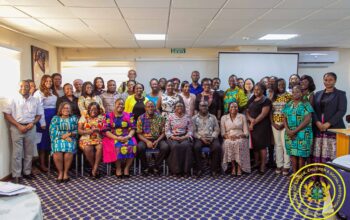The Ashanti Regional Health Directorate has ramped up public education efforts on cholera prevention and control. This intensified campaign comes in response to a rise in cholera cases and aims to reduce the spread of the disease through increased awareness of hygiene and sanitation practices. The Directorate has been engaging communities, local leaders, and media outlets to reach as many residents as possible, focusing on the importance of drinking safe water, properly disposing of waste, and thoroughly washing hands and food items.
Health officials are also emphasizing the symptoms of cholera—such as severe diarrhoea and dehydration—and encouraging those who experience symptoms to seek medical attention promptly. By heightening public knowledge and encouraging preventive actions, the Directorate hopes to curb the spread of cholera and protect the health of residents in the Ashanti Region. In response to confirmed cholera cases in the Greater Accra Region, the Ashanti Regional Health Directorate has intensified its public education campaign on maintaining cleanliness and observing hygiene protocols. Over the past few weeks, the Directorate has actively engaged the public through traditional media outlets and community information centres, emphasizing the crucial role of a clean environment in preventing the spread of cholera.
This public health push follows an October 14, 2024, press release by the Ghana Health Service (GHS), which reported cholera cases in Greater Accra, raising concerns about the potential spread to other regions. The Directorate is urging residents to practice proper waste disposal, use clean water sources, and adhere to handwashing and food safety protocols. By focusing on these preventive measures, the Directorate aims to protect the Ashanti Region from further cases and reinforce public awareness on combating cholera. The Ghana Health Service (GHS), in a release signed by its Director General, Dr. Patrick Kuma-Aboagye, reported nine confirmed cholera cases in the Ada West and Ada East Districts as of October 11, 2024. The statement outlined public health measures being implemented nationwide to prevent a wider outbreak, especially in high-risk areas.
The GHS has ramped up its preventive efforts, including intensifying public education on sanitation, reinforcing surveillance systems, and distributing sanitation supplies to communities. Health personnel are working closely with local leaders to promote hygiene protocols and ensure rapid response to any new cases. The GHS urges the public to stay vigilant, maintain clean surroundings, use safe water, and adhere to strict hygiene practices to curb the potential spread of cholera. In alignment with the Ghana Health Service’s nationwide efforts, the Ashanti Regional Health Directorate has intensified its public education campaign to promote hand hygiene and other preventive practices against cholera. Dr Fred Adomako-Boateng, the Regional Director of Health Services, told the Ghana News Agency (GNA) that strict Infection Prevention and Control (IPC) measures are being enforced across all health facilities in the region to mitigate the spread of the disease.
Dr. Adomako-Boateng emphasized the importance of frequent handwashing with soap under safe running water, particularly before eating, cooking, and after using the toilet. He also advised residents to prioritize safe drinking water, thoroughly wash fruits and vegetables, and avoid consuming cold or street-prepared foods, which may pose a higher risk. These measures, combined with community-wide education, are aimed at strengthening public defence against cholera and ensuring a healthier Ashanti Region.Dr. Fred Adomako-Boateng, the Ashanti Regional Director of Health Services, urged the public to promptly seek medical attention at the nearest health facility if they experience persistent watery stool, vomiting, or feelings of weakness and fatigue, as these may be symptoms of cholera. He emphasized that early treatment can significantly reduce the severity and spread of the disease.
Dr. Adomako-Boateng also highlighted the importance of hygiene within individual households, reinforcing that cholera prevention is a collective responsibility. He encouraged families to adopt daily hygienic practices, such as proper waste disposal, safe water use, and thorough food preparation, to protect their communities and curb potential outbreaks.









